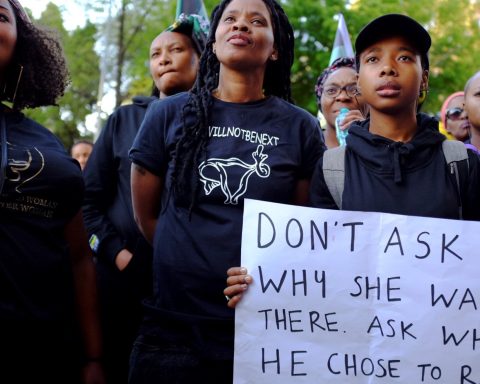South Africa’s Constitutional Court recently heard a landmark case that could redefine consent in rape cases. The Embrace Project, a nonprofit combating gender-based violence, launched the challenge alongside rape survivor Inge Holzträger. They argue that the Criminal Law (Sexual Offences and Related Matters) Act allows accused rapists to avoid conviction by claiming a subjective belief in consent, even if unreasonable. Consequently, the court reserved judgment after the hearing on 25 September 2025.
High Court Sparks Reform Push
In September 2024, a Pretoria High Court judge declared sections 3 to 9 and 11A of the Act unconstitutional. This ruling emphasized the urgent need to redefine consent in rape cases because these sections violate victims’ rights to equality, dignity, and security. For now, the invalidity is suspended for 24 months, allowing Parliament time to amend the law. Meanwhile, the Embrace Project seeks confirmation of this order and an interim rule requiring accused persons to demonstrate reasonable steps to confirm consent.
Survivor’s Ordeal Fuels Fight
Inge Holzträger’s 2018 rape case drives this challenge. Although a court found the act unlawful and without her consent, it acquitted the accused because he believed she consented. Holzträger recalled feeling “shell-shocked” and frozen during the assault, a common trauma response. Therefore, this legal challenge aims to redefine consent in rape cases, supporting countless women in similar situations and potentially transforming lives.
Low Convictions Demand Change
South Africa grapples with alarming rape statistics, as only 1.38% of 42,780 reported cases from 2022 to 2023 led to convictions. The law’s focus on proving the accused’s intent creates significant barriers, particularly when victims freeze rather than resist. Advocate Nasreen Rajab-Budlender, representing the applicants, stressed that redefining consent in rape cases is vital, as current laws favor perpetrators. For example, she proposed that asking “Is this okay?” could ensure clear consent.
Diverse Voices Shape Debate
Supporting groups highlighted trauma responses, explaining why victims may not resist. However, some oppose changes, arguing courts already apply reasonableness in consent cases. Initially resistant, the government now awaits the court’s decision but requests 36 months for amendments, whereas applicants push for 18.
Ultimately, this case could redefine consent in rape cases, prioritizing victim protection. Thus, South Africans eagerly await a ruling that aligns justice with lived realities.






